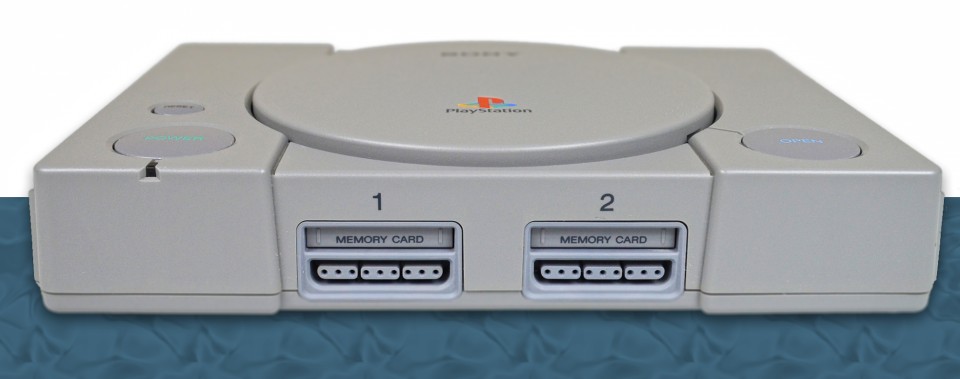How the PlayStation changed gaming forever

For a lot of newcomers to the wonder of video games, the idea that there was a time when Sony had no part in the computer games console battle might be a bit alien, but for a long time it wasn't even in the race. However, the advent of modern gaming had its dawn with the arrival of the original Sony PlayStation console in 1994 (1995 in the UK) and pixels have never been the same since.
If you rewind the clocks to the early 1990s there was only really Nintendo and Sega to choose from with their 16-bit 2D graphics and cute ambassador mascots, Mario and Sonic. With the PS1 things ramped up significantly as it focused on polygon-based 3D gaming, texture mapping and fast-paced action and intensity, with more of an adult style of gameplay.
Admittedly, Sony still had its own console mascot for a little while in Crash Bandicoot, but this was far from the main selling point of the console. The PlayStation was all about taking gaming to the next level and while there were a number of earlier examples of polygon texture mapping with the likes of Star Fox on the SNES, and a whole host of PC titles, it was Sony that really landed 3D console gaming in a big way.
It wasn't necessarily an easy battle for Sony, though, and both Nintendo and Sega put in a pretty epic fight, but the PlayStation 1 landed first and gained the upper hand fast. To begin with it was up against the might and glory of the Super NES and Sega Megadrive systems, which were both very well established with high unit volumes, compared to the PS1's standing start.
However, Sony's first console system had raw power and next gen visuals behind it, which was enough to make it a big draw for console gamers looking for the most cutting-edge home gaming device. The Sega Saturn was the only comparable system, touching down in the UK in summer 1995, making it a two horse race at the time, but with Sony's open door approach to third-party development, it managed to win the day.
The Nintendo 64 didn't arrive until 1997 in the UK, and while it was a little earlier in Japan and North America, it was just too late to the party to hold back the Sony tidal wave. The N64 went on to sell well enough, but by the time it arrived, the PlayStation had already clocked up huge unit sales, so it was too well established to knock back. It also had a very healthy stream of high quality games being released, which helped to keep the console in operation for so long.
The Sega Saturn was dead in the water within a few years and it was discontinued in Europe and the US in 1998 due to poor sales figures. That left just Nintendo and Sony, and the PlayStation had already stolen a march on the N64, so it went on to outsell it by three times over and become the first console to break the 100-million units mark.
Games were a huge part of the console's success going right the way back to the launch roster, which featured Battle Arena Toshinden, Warhawk, Air Combat, Ridge Racer and Rayman. It didn't bundle a title with the console, but that didn't stop it from selling well worldwide. This continued with the arrival of its most successful game, Gran Turismo, in 1998 and other huge titles like Final Fantasy VII in 1997.
Big-name gaming franchises had their beginnings on the PlayStation with exclusives like Crash Bandicoot landing in 1996 along with multi-platform releases like Resident Evil in the same year. Tekken went on to be one of the big early games for the console in 1995 and Metal Gear Solid snuck onto the scene later on in 1999 in the UK. There was no shortage of games in between either, with everything from the third person action adventure of Tomb Raider in 1996 to the open world criminal underworld fun of Grand Theft Auto in 1997.
By the time Sony announced the PS2 for launch in 2000, the PlayStation brand had established itself as the market leader for home console entertainment. It changed the face of gaming forever too. Not only did it wipe Sega's console presence off the face of the earth, but it also set the precedent for Microsoft to get in on the action with its own first home console, the Xbox in 2001 (2002 in the UK).
Fast forward to today and Sony is still leading the way in terms of console gaming with more worldwide unit sales than any of its competitors, and a very healthy upcoming games roster. It's also pushing boundaries with its PlayStation VR system, but the reality is that it has the success of the original console to thanks for its very existence.
About the author
Written by Gerard Harris, editor of the computer games section of Tuppence Magazine.


